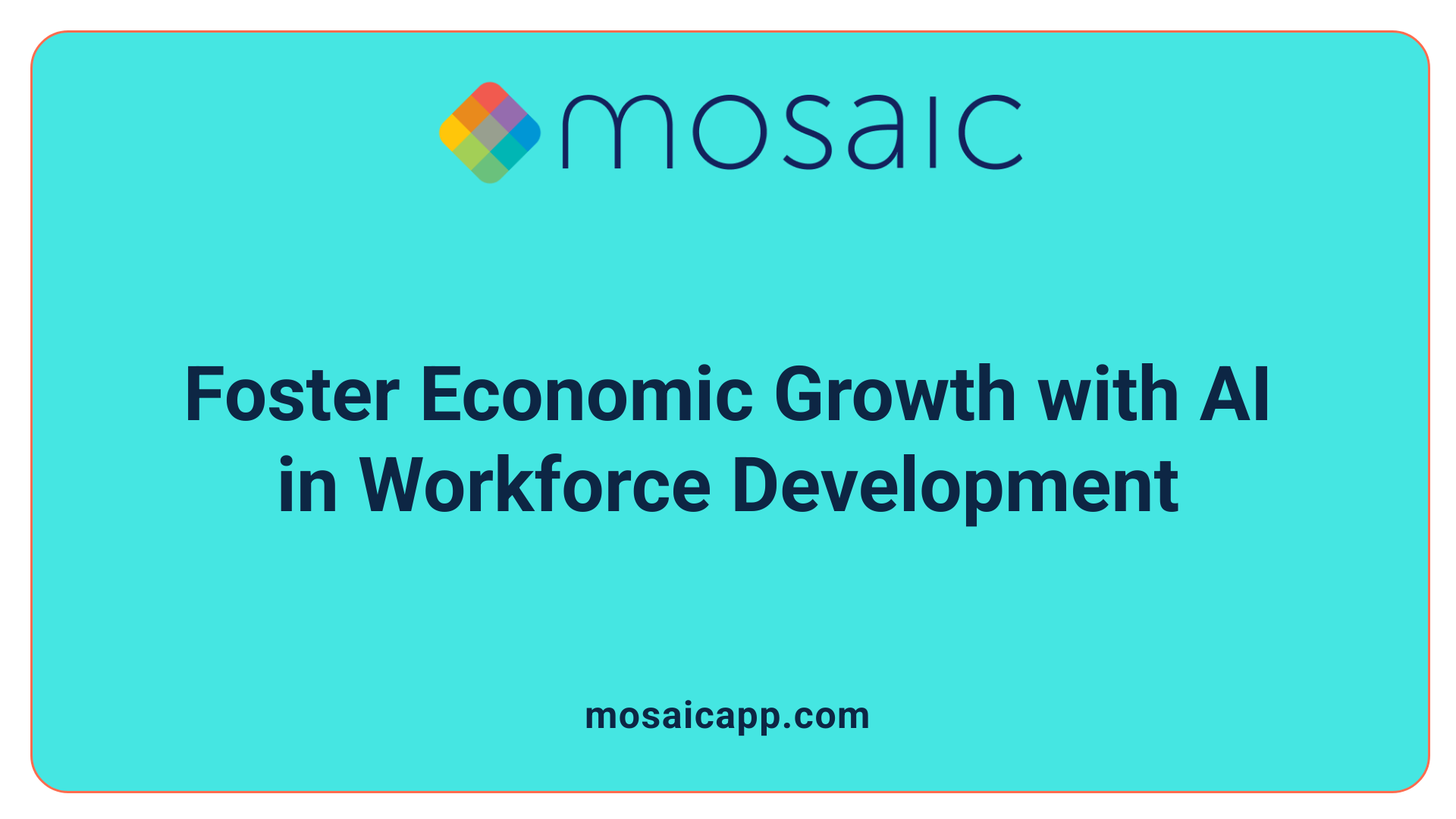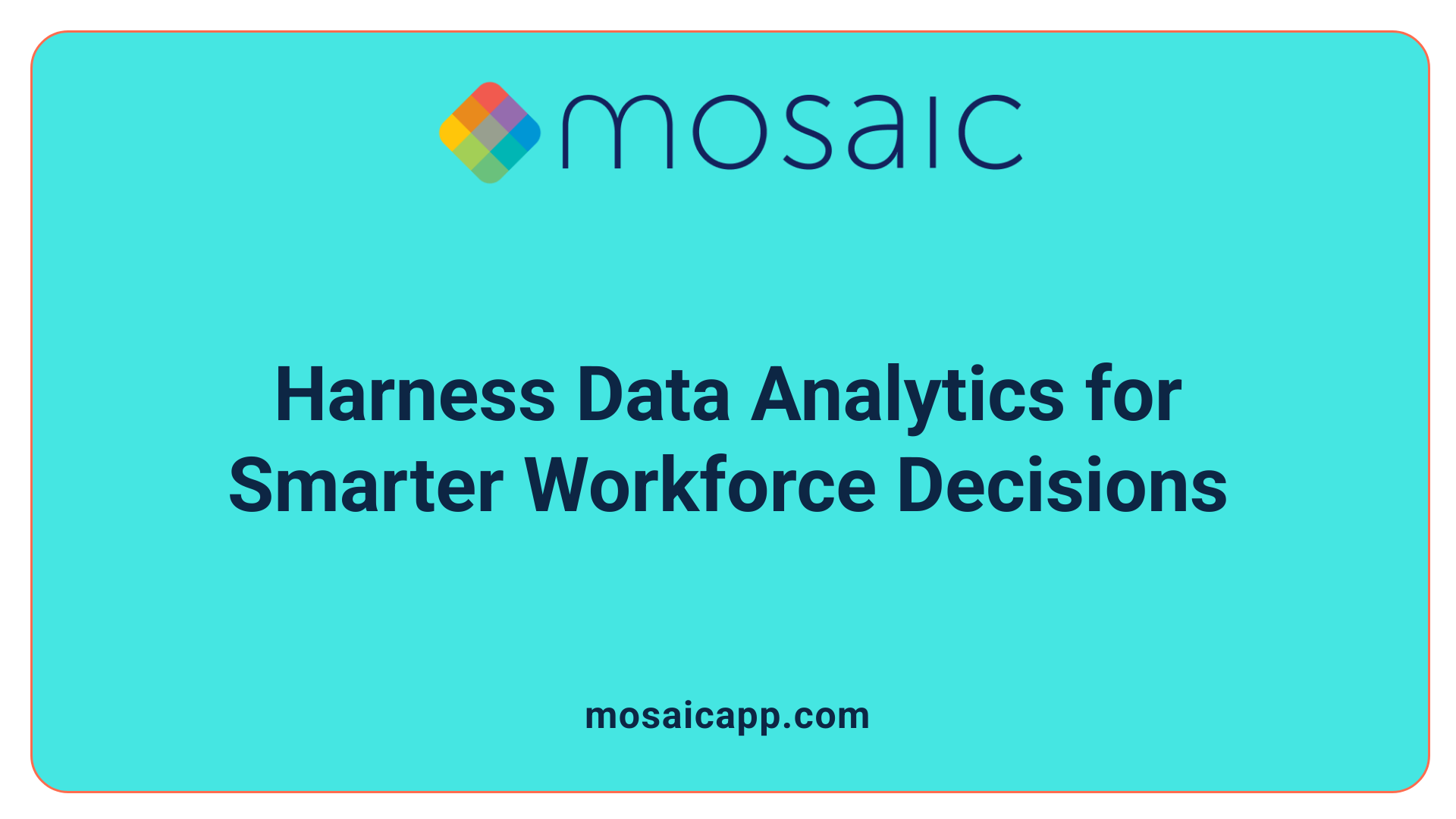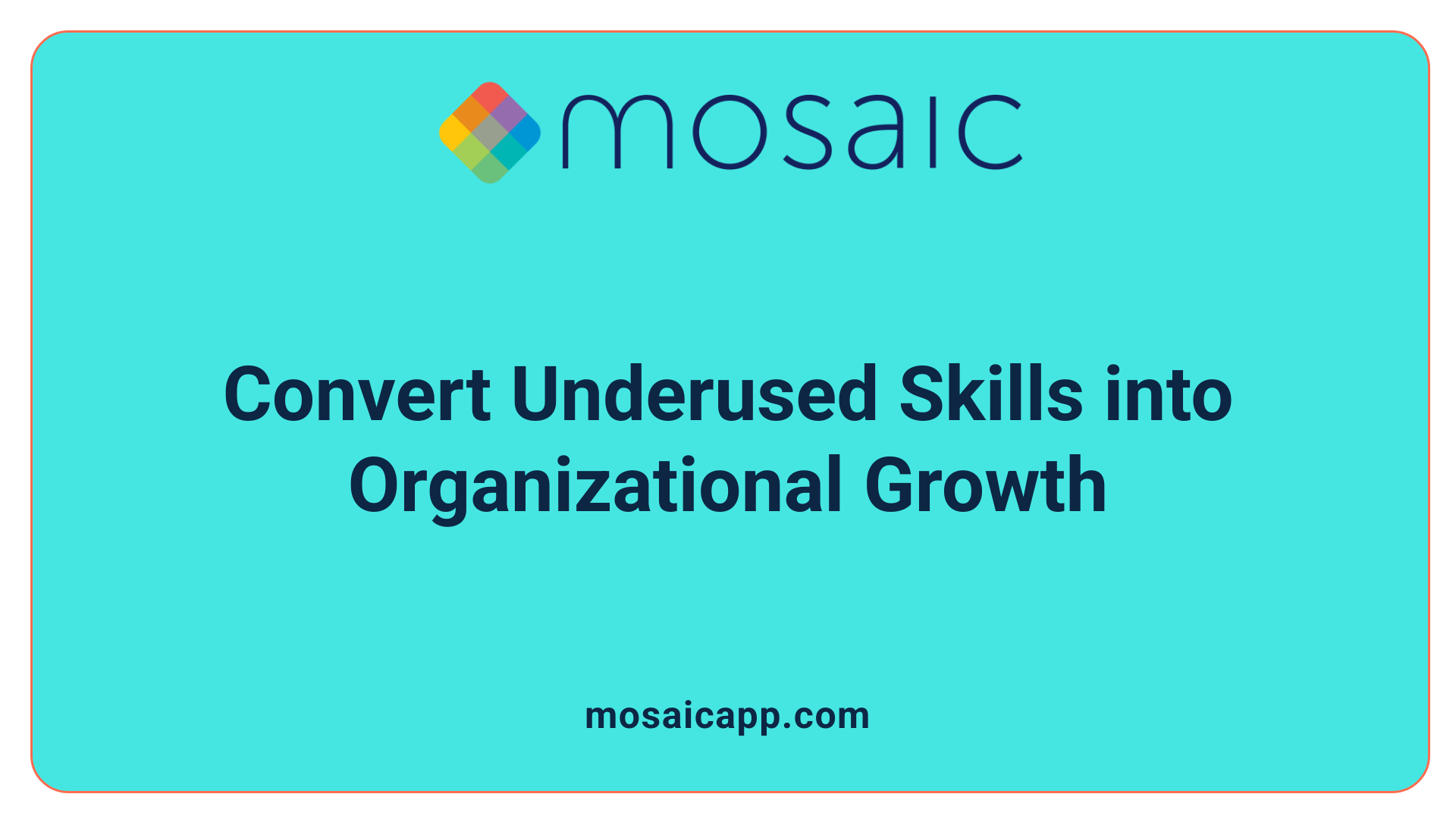Unlocking the Potential of AI in Talent Management
Artificial Intelligence (AI) is revolutionizing how organizations identify, develop, and deploy talent, turning underutilized pools into drivers of profitability and innovation. With strategic AI planning, companies can foster more inclusive, efficient, and resilient workforces. This article explores how AI's application across industries, from neurodiverse support to talent optimization, is shaping the future of work, underpinned by recent strategic initiatives like the American AI Action Plan.
AI-Driven Workforce Development Across Industries and Regions

How can AI be applied across different industries and regions to support workforce development and economic growth?
Artificial Intelligence (AI) plays a transformative role in shaping workforce development by improving skills training, matching jobs with suitable candidates, and guiding career paths. Across various industries, AI-powered tools like chatbots and virtual assistants enable organizations to automate routine administrative tasks, freeing up human resources to focus on strategic initiatives. Data analysis platforms help employers understand workforce trends and forecasts, facilitating better decision-making.
In healthcare, AI improves diagnostics and streamlines administrative work, allowing staff to dedicate more time to patient care and training. Manufacturing industries utilize AI to optimize production lines, boost efficiency, and develop skilled technicians through personalized learning platforms. Financial services leverage AI for risk assessment and customer service, while in education, adaptive learning systems customize training content for different learners, increasing engagement.
Regional examples highlight how AI can foster local economic growth. Rural areas, often faced with workforce shortages, can benefit from AI tools that support remote job matching and online training programs. Cities investing in digital infrastructure can deploy AI-driven solutions to connect residents with employment opportunities, enhance workforce skills, and support entrepreneurship.
Effective deployment of AI in workforce development also involves overcoming systemic barriers. Ensuring equitable access to digital tools and training is crucial for marginalized communities. Co-designing AI solutions with diverse populations guarantees relevance and fairness. Ethical issues such as algorithm bias and data privacy must be addressed, promoting trust and inclusivity.
In summary, AI's applications—ranging from personalized education to strategic labor market analysis—are vital for strengthening economic resilience. By fostering collaboration between industries and regions, and prioritizing equitable access, AI can significantly support workforce growth and economic prosperity on multiple levels.
Enhancing Organizational Efficiency and Profitability with AI

How do AI and analytics improve talent utilization and organizational profitability?
AI and data analytics have become essential tools for organizations aiming to boost efficiency and profitability. They provide predictive insights that help in making smarter decisions about talent management. For example, AI can identify skill gaps within a workforce, predict which employees might be at risk of leaving, and suggest optimal staffing levels. This proactive approach allows companies to address issues before they impact productivity.
In recruitment, AI automates routines such as resume screening, candidate evaluation, and communication, saving time and reducing costs. These tools not only streamline hiring processes but also improve the quality of hires by matching candidates more precisely to roles.
Employee development is also enhanced through AI-driven personalized learning plans, which adapt training programs to individual needs. This fosters higher engagement and retention, ensuring that employees develop skills aligned with organizational goals.
Furthermore, AI facilitates real-time performance tracking and feedback. Managers can monitor progress continuously, supporting an environment of ongoing improvement. By deploying AI and analytics, organizations create a data-driven HR strategy that leads to higher productivity, better decision-making, and ultimately, increased profits.
Below is a summary table highlighting the benefits of AI in talent utilization and profitability:
Benefit Area Specific Impact Additional Details Recruitment Faster, more accurate hiring Automates resume screening, improves candidate fit Employee Development Skilled workforce Customized training, higher retention Workforce Planning Clearer insights Predicts skill gaps, turnover risks Performance Management Better monitoring Real-time feedback fosters growth Financial Impact Increased profitability Reduced hiring costs, improved productivity
By embracing AI tools, organizations can develop a more agile and responsive workforce, ultimately leading to stronger financial performance.
Strategies and Best Practices for AI-Driven Talent Management
What strategies and best practices exist for AI-driven talent optimization and workforce management?
To effectively manage talent in an era shaped by artificial intelligence, organizations are adopting innovative strategies that integrate AI into their core HR processes. Strategic Workforce Planning (SWP) plays a central role. This approach uses AI-powered analytics to forecast future skills needs, identify gaps, and align workforce development with organizational goals. It enables real-time adjustments and more accurate decision-making.
Organizations are also investing heavily in reskilling and upskilling initiatives. These programs prepare workers for evolving roles and help retain valuable talent. Embedding workforce planning into daily operations improves agility, allowing companies to respond swiftly to changing economic and technological landscapes.
Utilizing AI tools for bias reduction in recruitment ensures a more diverse and equitable workforce. Personalized employee development programs driven by AI enhance engagement, while AI-enabled onboarding and performance management streamline processes, saving time and resources.
Fostering a culture of continuous learning and flexible work models are essential. Additionally, forming partnerships with educational institutions and industry peers expand talent pipelines, broadening access to skilled professionals.
Change management and strong data governance are foundational, ensuring AI integrations are ethical and compliant. By embedding AI into HR functions—such as wellness programs, employee engagement, and resource allocation—firms boost organizational resilience.
Overall, the holistic application of AI in talent management supports a dynamic, engaged, and future-ready workforce capable of adapting swiftly to rapid technological advances, including generative AI, and maintaining competitive advantages.
Strategy Implementation Focus Expected Outcomes Strategic Workforce Planning (SWP) AI analytics for skills forecasting and gap analysis Better preparedness for future talent needs Reskilling and Upskilling Ongoing training programs driven by AI insights Increased employee versatility and retention Bias Reduction in Recruitment AI tools for fair candidate screening More diverse, inclusive workplaces Personalized Learning & Engagement AI-driven personalized development plans Higher employee satisfaction and motivation Change Management and Data Governance Ethical AI policies and transparent processes Trustworthy, compliant AI use aligning with corporate values Integration into HR Processes Embedding AI into onboarding, performance, and wellness Improved efficiency, resource allocation, and employee well-being
Case Studies and Platforms Showcasing AI in Talent Transformation
AI is revolutionizing talent management by providing innovative solutions that enhance recruitment, development, and retention strategies. One notable example is Spire.AI, a platform that leverages advanced artificial intelligence technologies to optimize workforce management.
Spire.AI utilizes Large Graph Models to create comprehensive, auto-evolving skill profiles for over 83% of employees. This dynamic skill mapping enables organizations to identify strengths, gaps, and potential for development more accurately. As a result, companies can implement targeted reskilling programs and better align talent with strategic needs.
A significant success metric for Spire.AI is its impact on internal hiring. The platform has helped increase internal mobility from 21% to 56%, promoting career progression within organizations. It also reduces hiring costs by up to 70%, saving resources and accelerating the onboarding process.
Beyond recruitment, Spire.AI offers personalized learning pathways, helping employees acquire new skills efficiently. Its AI-driven insights into workforce data facilitate strategic planning, enabling companies to identify high-potential employees and address skill gaps proactively.
The strategic implications for organizations adopting such platforms are substantial. They foster a skills-based approach to talent management, increase agility in responding to market changes, and support diversity and inclusion by highlighting untapped talent pools.
Platform Main Functionality Impact Metrics Strategic Benefits Spire.AI Dynamic skill profiling, recruitment, learning Increased internal mobility (21% to 56%) Promotes internal talent growth, reduces hiring costs Other Examples Talent analytics, automated onboarding Cost reduction, faster hiring Enhances decision-making and workforce agility
The adoption of AI-powered talent platforms like Spire.AI indicates a shift towards more proactive and inclusive talent strategies. By harnessing AI to understand and develop their workforce, organizations can build resilient, skilled, and adaptable teams ready for future challenges.
Transforming Underutilized Talent Pools into Profit Centers via AI Planning

How can AI planning be used to transform underutilized talent pools into fully productive and profitable workforces?
AI planning plays a pivotal role in unlocking the potential of underused talent pools. By harnessing data analytics, organizations gain insights into employees’ hidden skills, competencies, and potential that might be overlooked in traditional assessments.
This approach enables targeted upskilling and reskilling initiatives tailored to both emergent industry needs and individual career aspirations. For example, AI-powered platforms can identify skill gaps and recommend personalized training modules, leading to more competent, versatile staff.
In addition, AI facilitates effective role matching by analyzing employee capabilities and aligning them with current or future job requirements. This dynamic matching enhances retention, engagement, and productivity.
Strategic workforce planning (SWP) integrated with AI tools anticipates future skill demands, ensuring the organization stays agile amid rapid technological changes like AI itself or the rollout of 5G. These insights support proactive talent management, reducing skill shortages and optimizing workforce composition.
AI also improves resource allocation by providing real-time forecasts of talent needs and movements. Automated talent databases and advanced matching algorithms enable swift redeployment of personnel to high-demand areas or new projects.
Moreover, embedding AI into HR processes streamlines recruitment, accelerates onboarding, and supports continuous development. Creating AI-augmented, cross-functional teams fosters innovation and drives organizational growth.
Concluding, AI planning transforms talent pools that were once underutilized into vital, adaptable assets. By deploying sophisticated analytics and talent management tools, firms can realize higher productivity, better talent engagement, and increased profitability—all from their existing workforce.
Future Outlook and Strategic Imperatives
As organizations continue to harness AI's potential, strategic planning, inclusive practices, and ethical deployment will be critical to fully realizing AI’s benefits. From enhancing talent utilization to driving organizational profitability, AI offers a pathway toward resilient, innovative, and growth-oriented workplaces. Embracing these advancements now positions companies to thrive in the evolving global economy, with an agile, skilled, and fully engaged workforce.
References
- What the American AI Action Plan Could Mean for ...
- (PDF) Strategic Implications of AI Integration in Workforce ...
- How to Attract, Develop, and Retain AI Talent
- Predicting Tomorrow's Workforce, Today: AI and Analytics ...
- AI is Key to Unlocking Neurodiverse Talent
- Report Shows Firms That Embrace AI Have Competitive ...
- Strategic workforce planning in the age of gen AI
- Talent Optimization: Strategies to Align Resources ... - Aura
